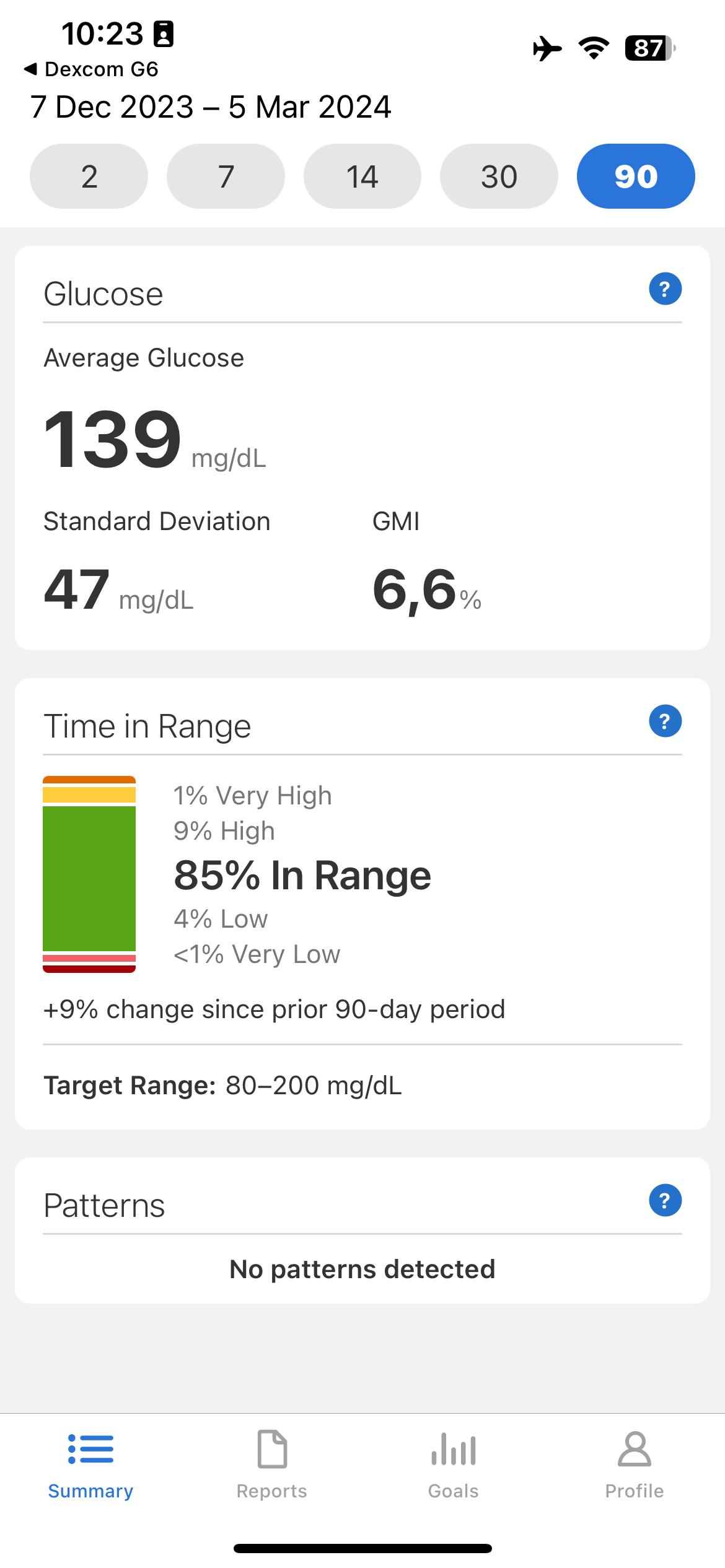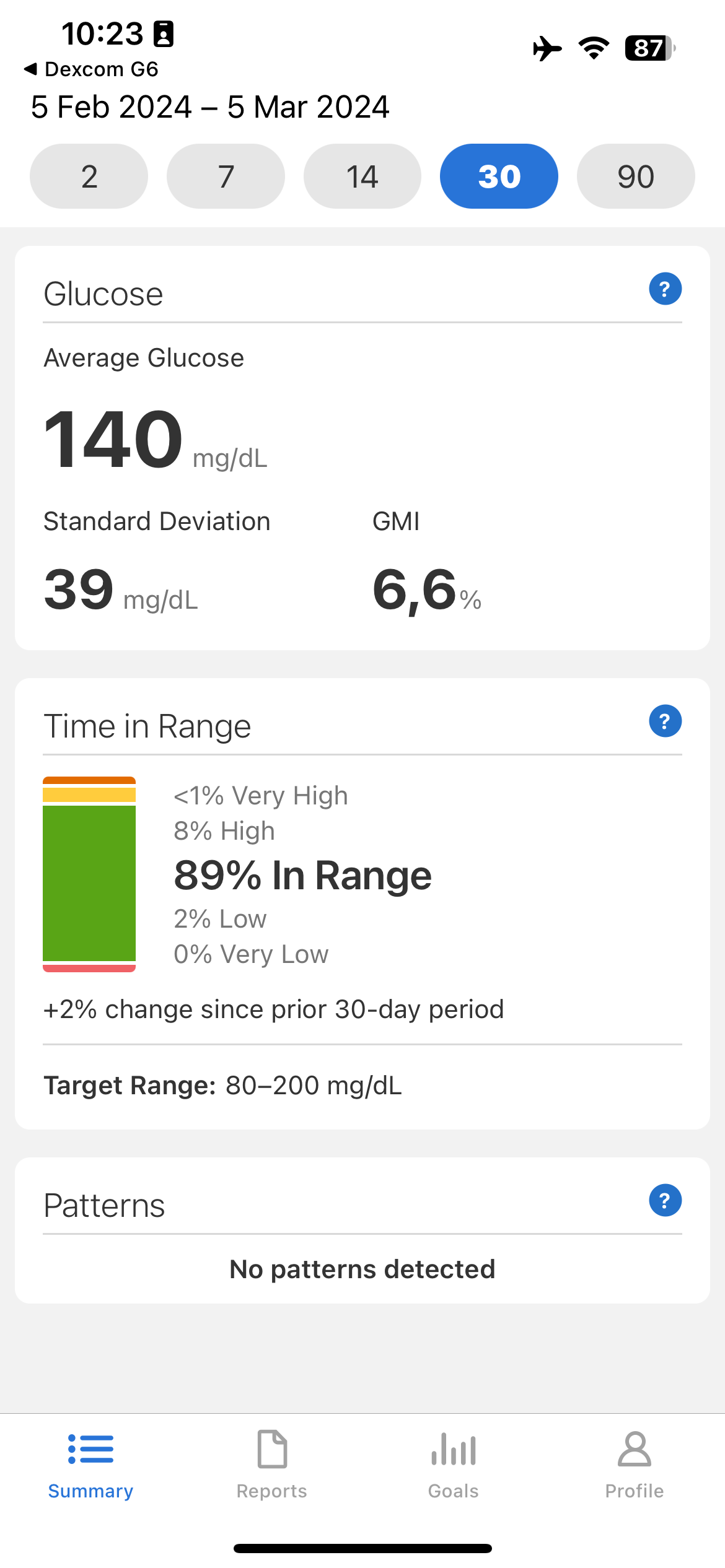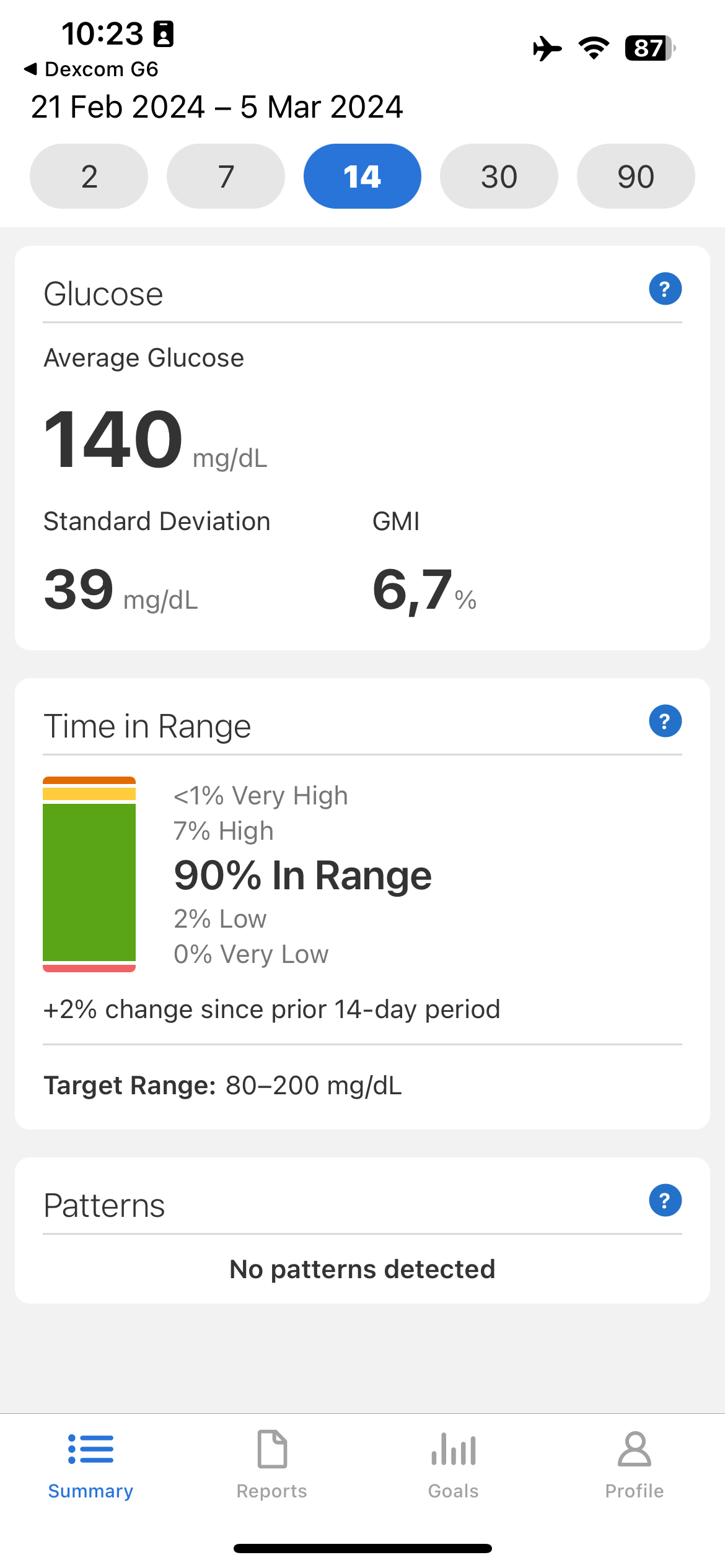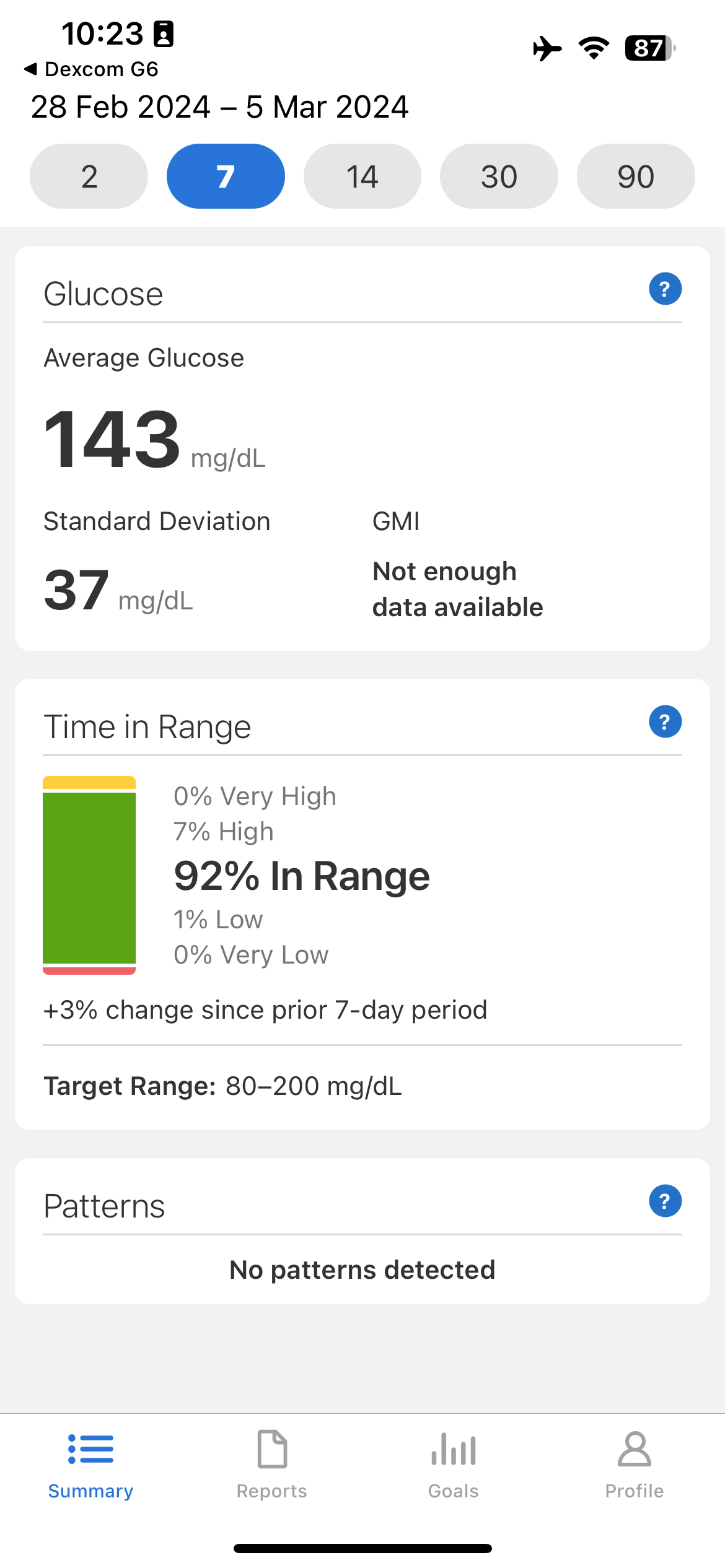What Is Your Top One Priority?
“How you spend your time reveals your priorities”. I read or heard this sentence somewhere on the internet a while ago. It has popped in my mind out of nowhere and has been bumping in my cranium ever since the beginning of this week. Since it doesn’t seem to vanish, I might just write about it.
Some people recently had comments on my rigorous methodology to track type-1 diabetes (the Decision Tree I borrowed from the Mastering Diabetes Method).
It has been labeled as way “too time consuming, complicated, hard to stick to”, something that requires a time commitment and a dedication that is too much for many.
That is true: logging food, tracking each injection, computing the carb to insulin ratio at each meal and use that ratio to inform the next best action it is not the frictionless approach one could think of.
There are days when you just want to forge about all the complications of living and five right into things.
With diabetes, you don’t just eat. Instead,
You have to put what you eat in an app to get the macros,
You then have to have a piece of paper and a pen in your pocket, which is an annoyance in itself,
Provided that you remembered to put it in your pocket to begin with, you have to write the macronutrients (especially carbs) on it to see it side by side with the previous carb to insulin ratio,
You then have to divide the two and calculate the bolus dose to inject.
Then you inject.
Then you can eat.
“How tedious! You certainly can’t do all of this while studying at school or university. I just want to enjoy a meal out!
Try that with a full time job, kids, chores, all the things one has to attend to in a day. You have to have the privilege of many hours of leisure and abundant free time…I don’t want to live like a robot with all these algorithmic processes!”
While out for a walk, it came to me that I had recently heard similar arguments when talking about being physically active.
I happen to enjoy running quite a bit, and dedicate quite some time to it by choice. I also advocate for the importance of daily movement on any given occasion with those close to me, but many times, I receive comments such as:
“It’s easy to run, to workout, when you are in your twenties and without a family. Try that with kids, responsibilities, work, and all these things that emerge when you finally become an adult.“
Or
“I simply don’t have time for it, the hours are 24, and I have to commute, study, work, do the groceries, have an argument with someone and hopefully get 4-5 hours of sleep. There’s too much stuff to cram in one day to ponder the idea of working out on top of it all”.
[The above are not the exact words I’ve heard, but a rather accurate account of what many friends and family members have told me over time in several occasions]
The Dune Baron regretting not moving enough in his life.
Surely enough, I am not an exception to this narrative. In the past, I’ve been reciting the same script, consuming all the excuses in the book.
My blood glucose was too frustrating to handle, but I was not putting any real effort into understanding and tracking type-1 diabetes properly, and those cakes were way too tasty anyway.
There was too much to do for me to workout and honor my body with daily exercise. The only way to be fit is to have that hour a day to go to the gym, which only the privileged have…”I am just too busy!”.
Then, over a one-month period a few years ago during the covid pandemic, I grew frustrated about this situation.
In nature, being sick, being injured, not being fit are deadly sins. We humans are born and evolved to move, and to preserve a strong health until late in our lives. If we fell to one of these sins, we could not hunt, gather, run faster than our predator, and die. I should not be an exception to this evolutionary process, I thought, so there must be a way to be healthy and fit, even with diabetes, even with a full time job (or any other excuse).
That’s when I sat with pen and paper every weekend and faced some hard truths there on the page.
And what came out of all that writing was that my health is my top one priority.
It wasn’t true there was no time for taking care of it. I was simply wasting it all chasing thousands of small tasks that were overwhelming me, filling my agenda, and leaving no free spot for the truly important stuff - the stuff that requires effort and intention.
It even felt comfortable to live like that, because keeping myself busy gave me the easy way out of having to commit to something that would put me to the test, require discipline and rigour. Then I understood the stakes: poor diabetes management, poor food choices, and a lack of physical activity constitute the surest and quickest path to a shorter life and more miserable health.
I (we) simply cannot afford not prioritizing these areas above all else.
The moment I realized this and reshaped my priority list, I magically started to find time to log food, insulin and meticulously annotate my diabetes management. And I also found time to exercise every day, consistently. All without compromising my work performance (”I don’t have time to workout…I have a full time job!…”) or any other area of my life.
If anything, more stable blood glucose levels and a fit body increased my energy and made navigating every day life a more pleasant experience.
What I am trying to say is something nobody wants to hear (I surely didn’t like back then when I admitted it to myself) - but needs to be said anyway.
All the excuses we narrate to ourselves are a big, huge, monstrous pile of crap. And not only are they an expression of our laziness, but they also signal that we’re getting our priorities all wrong. And they mine our health big time, except that we have this epiphany when it is too late - when that disease arrives because of a sedentary life and lack of nutrients in our diet, that injury forces you to stop moving and kickstarts the domino effect to real decline, when we can’t lift ourselves up from the chair without assistance.
If you don’t know where to allocate your time - which is, where your top priority is - look no further than health.
There is NOTHING more important than health. Without it, everything else falls apart sooner or later. The good news is that you can do things to improve your health. The bad news is that you have to commit to it and attend to it everyday.
If you care about your health and your wellbeing in the long term, you WILL find the time to track it, to eat better, to move, to be emotionally more balanced. That is a fact.
Time efficient ways to stay fit when you can’t workout. Commute carrying some weights! If you’re a weirdo like myself and don’t like grocery bags, you can directly go for the kettlebell.
The argument “I don’t have time for it” simply means we don’t want to have time for it, that health is not a priority. Everyone has a job, chores and all the responsibilities you can imagine. The perfect raw material for excuses,.
We can’t fool ourselves into thinking that everything will be fine eventually, that we’ll rest and take care of it once we retire, or tomorrow. That will be far too late.
Stating priorities clearly and concisely (on a journal, perhaps) magically clears the agenda, the mind and brings instant clarity on the course of actions.
When I think I don’t have time to move, that my logging system for diabetes is too much, and so on…I just find it because these are the small daily duties to keep my health intact. Since my health directly depends on them, they become a top priority. Every other task becomes secondary.
It takes me one fraction of a second to recognize an excuse I am hiding behind. Then I think a few years down the line: not having taken the time to be diligent about my lifestyle, diet choices and decisions about type-1 diabetes management will inevitably lead to terrible consequences and complications you must avoid to the best of your abilities.
Putting it all on paper on those weekends some years ago has silently put some changes in motion.
I accepted jobs where I knew the commute would be short, to have more free time to be active, read, reflect. I declined jobs where I could not commute to the office by foot (yep, that also counts as daily exercise).
I made it a point to meditate every day, even for 5 minutes, to take care of my mental health and my stress.
No day passes without some form of exercise, be it running, strength or else. On days when “there’s no time for it!” I walk to the office with a kettlebell, insert several short movement snacks during my office hours and spend as less time as possible on a chair, walking during meetings.
I got myself a multicooker that cooks while I sleep, so I always have healthy food with me and don’t need to eat processed food at restaurants.
That old story that debts and loans are the normality and “it is always going to be like this”? No. I spend less and invest all the available savings each month.
No time to read? Yes I have time to read. I just turn off the TV two hours before bed and read. This thing alone has exposed me to ideas that have genuinely changed my life. The one example comes directly from my life as a type-1 diabetic.
At the start of my journey with diabetes on 7 April 2013, the narrative I was being fed by the professionals and the peers around me sounded pretty much like “Yes, it’s hard. You’ll always have to balance between highs and lows, carry your sugar, be extra careful with aerobic exercise…aim at 70% time in range, but it’ll be hard. Do your best”.
On day one, I was advised to prefer low-risk sports and activities (i.e. don’t run), and I was proposed a diet centered on proteins and fats (such as olive oil and some meat or fish), some carbs (pasta, bread and rice) but not too much because “carbs will cause spikes”. Fruit was severely limited because it would spike blood glucose, and fibers were a mere side dish.
I was eating all the foods that promote insulin resistance, and not moving out of the fear of hypoglycaemia.
For a long time I stuck to that story. My super high hyperglycaemias and super low hypoglycaemias were just my new normal, an inescapable truth.
Then, out of frustration, I started to untangle type-1 diabetes on my own and see if I could avoid all those ups and downs that were impacting my day to day. I also could not accept that running was too dangerous for me. So I studied, read, tried things. Finally, I stumbled upon the book Mastering Diabetes, and that was the final push to dug myself out of the hole I was into! And you can see the results (in order: last 90, 30, 14, 7 days) of prioritizing type-1 diabetes management, with all the nice things that derive from it.
Looking at the print of my original diet plan and diabetes management recommendations today I cannot make sense of it. It makes me cringe. It had everything that is wrong for type-1 diabetes management - refined carbs, fat rich processed foods like olive oil and animal products - and it misses the optimal ones - legumes, fibers, fruits and other whole plant-based carbohydrate rich foods. No stress on the importance of being physically active.
When I changed the narrative, I also changed my approach to it - to my overall health. And everything else changed and improved as a direct consequence.
I eat better, I am healthier (my blood work doesn’t lie), my time in range sits around 90% constantly, and I am running marathons.
Had I not journaled, reflected, read my way out of all my comfortable excuses, I would never had the propulsion to reset my priorities and change my life accordingly. It is all about proving things by experience. If you don’t trust a sample size of one (understandable), thousands of others can convince you. And if you still are in doubt, science has your back.
And in any case nobody can dig yourself out of the hole. You have to do the work, find your priorities and follow them every day. You do have the time to exercise, eat with intention, take care of all areas of your health.
If you feel like you don’t, it is a good moment to pull out those pen and paper and figure out why. And declare how you’ll change this reality.
I’ll finish with a word of encouragement.
If this sounds heavy, that’s because it is. The good news is that you only have to do the heavy lifting at the very beginning, and then it is a mere daily practice of small acts that reap immense benefits and liberate time for leisure.
When the top priorities are tackled intentionally, time magically multiplies.
I don’t want to leave you with the idea that I spend all my waking hours working out, scribbling diabetes data on paper, reading, being hyper productive. I don’t. I have days more difficult than others, and on such days I minimize everything in order to stay consistent.
No energy to log food? I just eat same as yesterday and recycle my dosages.
No energy to workout? I just insert many short walks here and there, keep my body in motion in ways that are compatible with life at the office or elsewhere.
I just keep it consistent. And this consistency pays dividends: my body being insulin sensitive, I can run free of fear of unstable blood glucose. I can work without loss of focus. I can eat the food I love (whole plant based foods rich in carbohydrates. Fruit for the win!). And staying in shape is the mere consequence of all this, I barely have to put much thinking into it.
Bad days and periods are always behind the corner, but they are flattened by the volume of good days that we get in, if we live intentionally and we set clear priorities.







